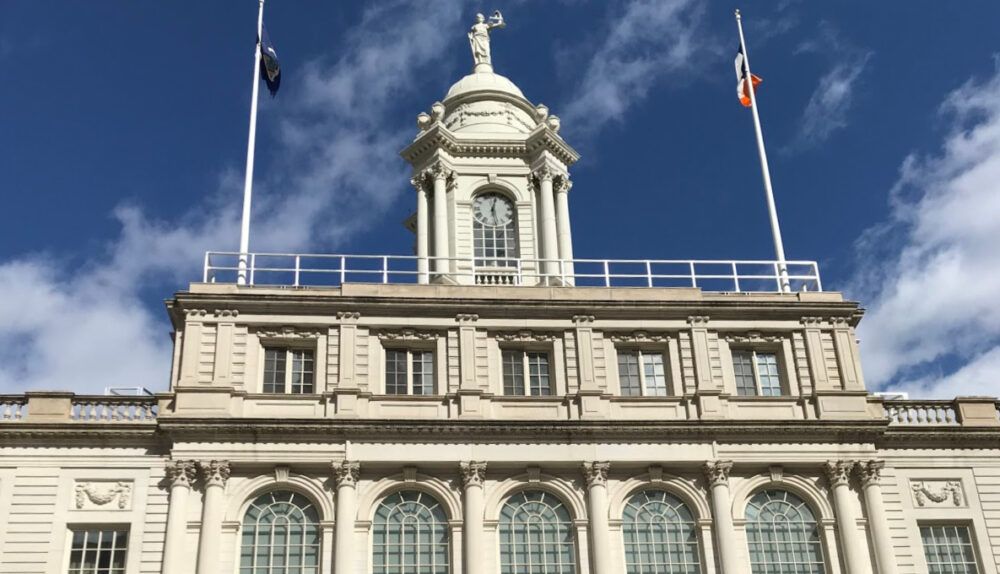Falling Short: NYC’s Failure to Provide Mandated Services for Preschoolers with Disabilities
This June 2023 data analysis shows that 37% of all preschoolers with disabilities—a total 9,800 children—went the entire 2021–22 school year without receiving at least one of the types of services the DOE was legally required to provide, a systemic violation of students’ rights. The report analyzes DOE data, which likely significantly understate the magnitude of the problem, and makes recommendations for needed changes moving forward.

Advocates for Children of New York (AFC) released a new data analysis, Falling Short: NYC’s Failure to Provide Mandated Services for Preschoolers with Disabilities, showing that 37% of all preschoolers with disabilities—a total 9,800 children—went the entire 2021–22 school year without receiving at least one of the types of services the New York City Department of Education (DOE) was legally required to provide.
The report analyzes DOE data and draws attention to systemic violations of students’ rights. For example:
- More than 6,500 preschoolers who needed speech therapy did not have a single session of this service last year, representing 24.5% of all those recommended for monolingual speech therapy and 33% of those who needed bilingual speech services. Geographically, service shortages were widespread: in 26 of the City’s 32 community school districts, one in five preschoolers—or more—never received their mandated speech therapy.
- Roughly 1,300 preschoolers went the entire school year without special education itinerant teacher (SEIT) services (support to help include a child in a general education preschool class), representing 19% of all those who had this recommendation on their Individualized Education Program (IEP).
- About 1,015 preschoolers who needed a small special education class were still waiting for a seat at the end of the 2021–22 school year.
- No school district managed to fully serve even 85 percent of its preschoolers with disabilities enrolled in 3-K and Pre-K for All programs, let alone the 100 percent required by law. In five Brooklyn districts, over 40% of children in 3-K and Pre-K finished the year having never received at least one of their mandated service types.
Moreover, these numbers likely significantly understate the magnitude of the problem. For reporting purposes, the DOE considers children “fully” served if they had one session of a given service at some point during the school year, failing to capture children who waited months for their services to begin.
“These services are not optional; they are legal requirements, and they are critical to the development of young children.”
Kim Sweet, AFC’s Executive Director
“The Mayor’s proposed budget would cut hundreds of millions of dollars from the education budget while the DOE is failing to comply with a decades-old federal civil rights law. Instead of cutting funding, the City must make the investment needed to hire enough special education teachers, service providers, and evaluators to meet its basic legal obligations to preschoolers with disabilities,” said Kim Sweet, AFC’s Executive Director.
In December 2022, Mayor Adams committed to providing a preschool special education class seat for every child who needed one by the spring of 2023, as the City is legally required to provide. While the City has opened enough new classes to serve nearly 700 children, there are still more than 300 preschoolers waiting for a seat in the special education class they need. With respect to children needing the support of a part-time special education teacher in their 3-K or pre-K class or services like speech or physical therapy, we have heard from numerous parents in recent months who have been told by DOE administrators that there are no special education teachers or service providers available at the agencies the DOE relies on to serve most preschoolers. As one administrator recently wrote to a parent: “I contact and follow up with agencies each week and at this time they are not responding to my email requests.”
“We have had even more difficulty this year getting services in place for preschoolers with disabilities whose parents contact us,” said Betty Baez Melo, Director of AFC’s Early Childhood Education Project. “It is heartbreaking and extraordinarily frustrating for parents when months and months go by and their children are still not receiving the help that everyone agrees they need.”
“The school year is almost over and my son is still waiting for the DOE to find a speech therapist to come to his 3-K program,” said Jordan Bell, the father of a 3-year-old who went months without any speech therapy and is still not receiving his full IEP recommendation. “I first asked for my son to be evaluated for services in April 2022, but was told to wait until he started 3-K. In January, the DOE agreed he needs speech therapy, but couldn’t find a therapist to work with him. Since April, I’ve been bringing my son to a school on Saturdays so he can at least get one of his two weekly speech sessions, but it’s just not enough.”
“My son is struggling to participate in class because it is hard for his teacher and classmates to understand him. I’ve asked the DOE for help again and again. If there aren’t enough speech therapists, then the City needs to hire more.”
Jordan Bell, father
“It’s unconscionable that almost 10,000 preschoolers did not receive all of their special education services last year,” said Council Member Rita Joseph, Chair of the New York City Council Committee on Education. “We know this failure to support our youngest learners will only increase costs for the City in the long run, and we must act now. I look forward to partnering with the Administration to make sure there are enough service providers to meet the needs of every student with a disability.”
-
View the press release as a PDF
June 6, 2023
Media Coverage
-
NYC failing to provide legally required services to thousands of preschoolers with disabilities
-
Report: Nearly 10,000 preschoolers with disabilities did not get services last year
-
Nearly 10,000 NYC preschoolers with disabilities aren’t getting legally required city services
-
NYC failed to provide full services to 9,800 preschool children with disabilities last year: report
-
More than 10,000 preschool kids missed required education services this year


